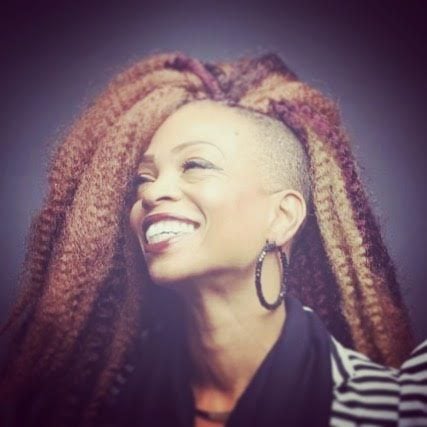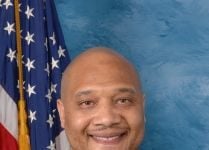The decision just handed down by the Supreme Court is likely to be dressed in procedural language and technical footnotes.
They’ll say it’s about jurisdiction. About the scope of judicial relief. About “restoring constitutional balance.” But Black folks — the ones who’ve learned to listen for what the law won’t say out loud — heard it plainly:
The Supreme Court just legalized a caste system. And Black folk know the sound of its tongue.
The mask of procedure, the mouth of power
In Trump v. Casa, the Supreme Court ruled that federal courts can no longer issue nationwide injunctions against unconstitutional laws or executive orders unless those injunctions are necessary to provide ‘complete relief’ to the actual plaintiffs. On paper, this is a minor adjustment. In practice, it’s a seismic shift — one that fractures the power of civil rights enforcement and unleashes executive overreach with few national guardrails.
And Black people, born into the rhythms of systems designed to subdue us, recognize the dialect. We know what it means when protection becomes piecemeal, when justice depends on ZIP codes, when the fight for citizenship must now be waged district by district, like some 21st-century legal Underground Railroad.
This is not neutrality. This is a strategy.
This is not democracy. This is digital Jim Crow, dressed in robes.
Caste by another name
This ruling doesn’t just shift courtroom logistics. It greenlights a tiered system of rights, where one person can be protected in California but unprotected in Indiana, where your child may be a citizen in Illinois but “undocumented” in Texas, all depending on who sued first, and where.
That is the essence of a caste system:
Unequal status is codified by geography, wealth and access to justice.
This echoes the legal apartheid of pre-Brown v. Board America, where one court’s ruling had no bearing on a segregated state two borders away, where Black citizenship was conditional. Provisional. The law was there — but it didn’t cover us unless we marched, bled and sued to make it so.
Now, in 2025, the Supreme Court has made that patchwork permanent.
They’ve resurrected the ghost of Plessy — not by name, but by function.
The profits of inequality
This isn’t just political. It’s profitable.
Corporations now face a map of deregulation opportunities. Labor protections, environmental rules and health care standards can now be challenged — or ignored — state by state. And who will suffer most? The Black and brown workers at the bottom of the ladder, already underpaid, are now further unprotected.
The rollback of birthright citizenship is already in motion — Trump’s executive order is just the start. The Court didn’t rule on whether it violates the Fourteenth Amendment. They merely removed the brakes. Now it’s up to each district to fight on its own.
If your state doesn’t sue? You’re out of luck.
If your lawyer can’t afford a class action? You stay vulnerable.
If your community doesn’t have access to pro bono support? You don’t just lose rights — you never had them.
Black folks speak the mother tongue of the law
We’ve seen this before.
We saw it when Dred Scott was told he had no rights that a white man was bound to respect. We saw it when Reconstruction was abandoned and Jim Crow put on its Sunday best. We saw it when red lines were drawn around our neighborhoods and when “tough on crime” was code for “lock them up.”
This ruling? It’s just the latest chapter in an old script.
One where power rewrites justice in the voice of delay, distance and denial.
But Black folks are fluent in this dialect. We were raised in it. We’ve learned to read the fine print behind the flag.
We are not confused — we are prepared
They may refer to this decision as “judicial modesty.” We call it what it is: legal gaslighting.
A soft coup against equal protection. A scalpel cutting civil rights into regional privileges.
But we are not confused. And we will not be silenced.
We know that every right we’ve ever had in this country was fought for, not given. We know that liberation won’t come from a robe, a bench, or a ballot alone. It will come, as it always has, from collective memory, communal strategy and cultural clarity. From Harriet’s whispers. From Baldwin’s fire. From Ida’s pen. From Angela’s scream. From every Black child who dares to dream in a language the law still doesn’t speak fluently.
The Supreme Court has spoken. But so have we.
You don’t have to call it a caste system for it to function like one. You don’t have to say “second-class citizen” out loud when the paperwork now does it for you. The robe may be black — but we know it masks an old white lie.
We see you.
We name you.
And we will organize like freedom depends on it — because it does.
Tasha Jones is an award-winning journalist, poet and cultural critic who explores language, liberation, identity, fashion, beauty and Blackness. A TEDx Fellow and the Reginald L. Jones Fellow at the Indianapolis Recorder, she holds an MFA and an MS, balancing sensory artistry with scholarly insight. She lives in Indiana with her children, Shalom and Messiah, and their fur baby, Duke.
LaTASHA BOYD JONES
Tasha Jones is a poet, writer, researcher, and educator whose work explores language as a tool for liberation and resistance. She hosts In the Beginning: The Spoken Word Podcast, the #1 spoken word podcast on Apple and Spotify. Tasha is also the Poems & Parables Literary Journal editor and is currently writing Pyramids. Plantations. Projects. Penitentiaries. You can follow her on social media: @iamtashajones, @itbspokenwordpod, and @poemsandparables.





